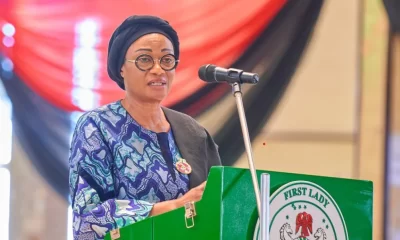Challenges with meeting the growing demand for forex at the official Central Bank window have forced manufacturers to rely on a combination of creative ways to access the forex that they need.
National Daily gathered that some of the manufacturers get their forex through a combination of official and unofficial means, oftentimes at risk of receiving illicit global money flows.
While some complained of access to forex others who were able to access revealed it cost a bit more to buy when compared to the official market price. Unilever, an FMCG company, revealed that it bought dollars at 9 percent above market rates.
To meet their demand manufacturers have gotten creative by leveraging on sourcing from the official window (when available), black market, dollar receipts, import substitutions, related parties, or by reducing imports of raw materials inputs.
Manufacturers, such as cement companies, BUA tend to rely on the CBN window primarily for the purchase of spare parts. “For the rest of our operations such as the purchase of spare parts or new equipment, we rely on sourcing FX from the CBN, using the I&E window”, its CEO, Yusuf Binji, revealed in the company’s 2021 Annual Report and Accounts.
READ ALSO: Forex scarcity bites as foreign medical spending crashes in H1 2022
But while large corporations like BUA and Dangote can still access forex from the official window it hardly meets their demand requiring that they will rely on other sources to meet their demand. Smaller businesses are not anywhere close to securing forex from the official window.
Most manufacturers however admit to obtaining forex from the black market despite the about N300 difference between the official market and the black market.
Commenting on the move by manufacturers, Shola Obadimu, director-general of the Nigerian Association of Commerce, Industry, Mines, and Agriculture (NACCIMA), said, “If the banking system cannot give us what we want, we go to the alternative market.”
Other manufacturers reveal they get their forex via “inflows” which is a term for trading forex via international bank transfers between a bank account outside Nigeria and the payment for the forex closed in naira in a local bank account.
However, the inflow market bears several risks that can range from purchasing illicit money flows, to terrorist financing and money laundering. Most manufacturers mitigate the risk by vetting the sellers of the forex and their source of inflow.
Most oil and gas export companies like Seplat also earn a significant amount of their revenues in dollars and tap into this inflow to meet the cost of their foreign currency related expenses.
For example, PZ Cussons revealed in its latest full-year results that it obtained a $40 million interest-linked finance from its parent company.
READ ALSO: Manufacturers in Nigeria to get loan at single digit rate, says CBN
Nestle Nigeria Plc, one of the country’s largest food manufacturing companies, also relies on intercompany loans to fund its forex needs.
In its 2022 half-year results, the company reported it has obtained intercompany loans to the tune of $160 million at an average interest rate of about USD Libor plus 11.34% and including a moratorium of interest payments.
Many more foreign-owned and managed companies utilize the same strategy to meet forex needs.
Professor of Economics at the Lagos Business School, Bongo Adi, thinks that the apex bank has found itself in a conundrum. “They are caught between the Devil and the Deep Blue Sea”, he said.
He expatiates: “Deregulation would have been countenanced if the country isn’t so neck deep in debt, and foreign revenue is scanty. Borrowed against some predetermined exchange rate. Liberalizing now risks the naira falling to unforeseen and therefore, unplanned low.
“That must trap them in facing sovereign default. I want to believe that the recent policy on mutation of the naira note could be an experiment to see if it is possible to garner extant liquidity. But I cannot see how that helps anything”, he stated.

 Entertainment6 days ago
Entertainment6 days ago
 Entertainment3 days ago
Entertainment3 days ago
 Comments and Issues6 days ago
Comments and Issues6 days ago
 Business7 days ago
Business7 days ago
 Health1 week ago
Health1 week ago
 Comments and Issues6 days ago
Comments and Issues6 days ago
 Editorial Opinion1 week ago
Editorial Opinion1 week ago
 Health5 days ago
Health5 days ago

